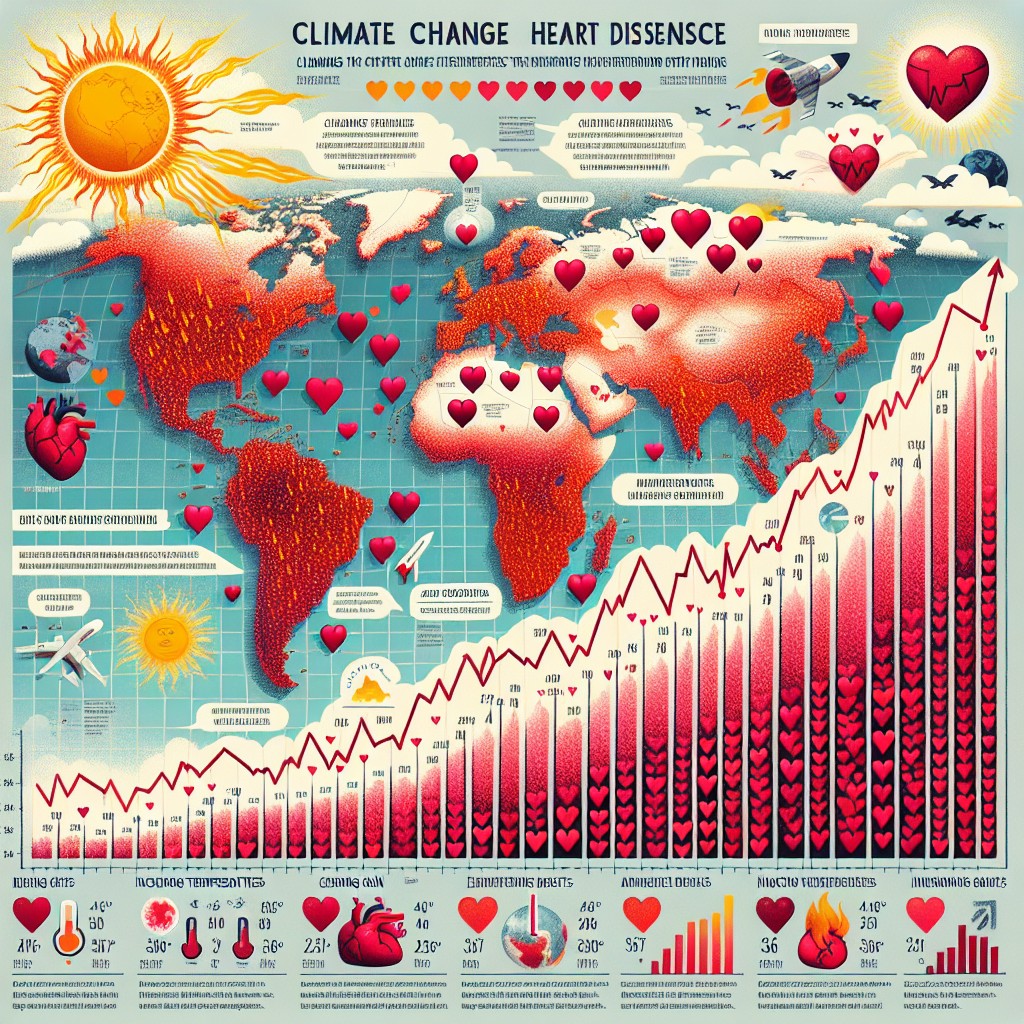Climate Change Predicted to Increase Heart Disease Rates
Climate Change Predicted to Increase Heart Disease Rates
Introduction
Recent studies have highlighted a concerning link between climate change and rising heart disease rates. As global temperatures continue to climb, the impact on human health, particularly cardiovascular health, is becoming increasingly evident.
Key Findings
- Temperature Extremes: Fluctuations in temperature, both hot and cold, are associated with increased cardiovascular stress, leading to higher incidences of heart attacks and strokes.
- Air Pollution: Climate change exacerbates air pollution, which is a known risk factor for heart disease. Pollutants such as particulate matter and ozone can trigger inflammation and oxidative stress in the cardiovascular system.
- Stress and Mental Health: The psychological stress associated with climate change, including anxiety and depression, can indirectly contribute to heart disease by promoting unhealthy lifestyle choices and increasing physiological stress responses.
Vulnerable Populations
Certain groups are more susceptible to the cardiovascular impacts of climate change:
- Elderly Individuals: Older adults are particularly vulnerable due to pre-existing health conditions and decreased physiological resilience.
- Low-Income Communities: These communities often lack access to healthcare and resources to mitigate the effects of climate change, increasing their risk of heart disease.
- Urban Residents: People living in urban areas face higher exposure to air pollution and heatwaves, compounding their risk of cardiovascular issues.
Mitigation Strategies
Addressing the intersection of climate change and heart disease requires a multifaceted approach:
- Policy Interventions: Implementing policies to reduce emissions and improve air quality can significantly lower the risk of heart disease.
- Public Health Initiatives: Educating communities about the health impacts of climate change and promoting heart-healthy behaviors can help mitigate risks.
- Healthcare Adaptation: Enhancing healthcare systems to better respond to climate-related health challenges is crucial for protecting vulnerable populations.
Conclusion
The link between climate change and heart disease underscores the urgent need for comprehensive strategies to address environmental and health challenges. By understanding and mitigating these risks, we can protect public health and improve cardiovascular outcomes in the face of a changing climate.















